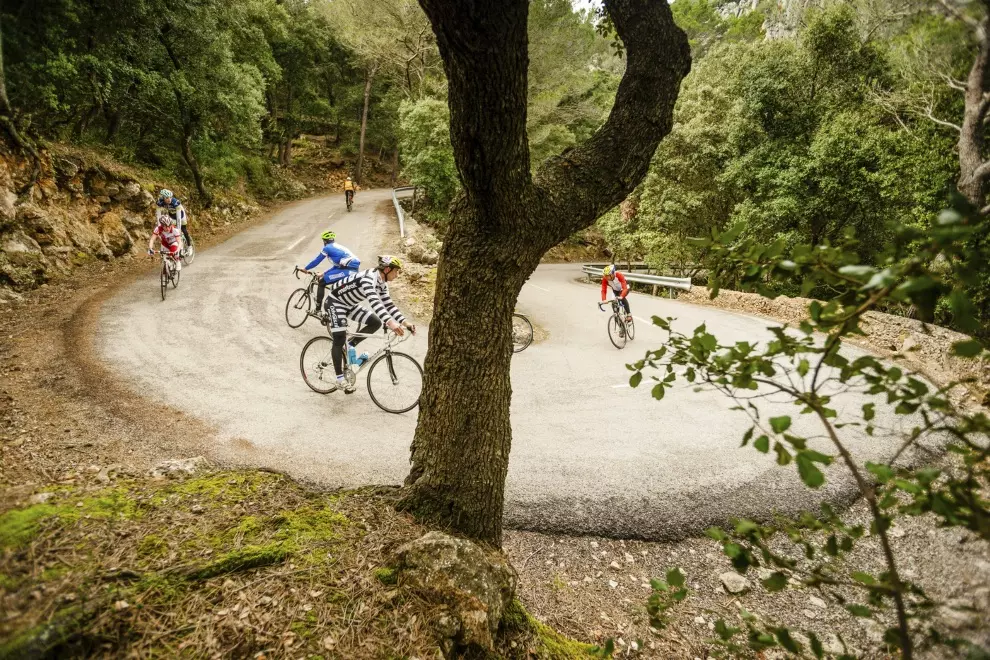Basically, we are talking about a toolkit full of powerful mental strategies that harness the strength of positive self-talk. Research shows that how we talk to ourselves during challenging moments can significantly impact our performance and endurance.
Our brain is a powerful ally if we know how to work with it. So, if you’re looking to up your game, here’s how to prepare to have constructive and encouraging conversations with yourself to boost your cycling performance.
Pre-ride preparation: Setting the stage for success
Before you hit the road or trail, mentally prepare yourself by visualising success. Visual imagery has been shown to prime muscles and focus the mind, enhancing performance. Imagine yourself conquering difficult terrain with ease, feeling strong and resilient. This mental rehearsal prepares your brain to respond positively to challenges instead of succumbing to doubt. When you visualise, you’re training your brain to believe that you can achieve your goals and prepare yourself to face challenges head-on.
Identify trigger points and responses
Know your triggers—the moments or conditions during a ride when doubt or fatigue typically sets in. It could be a steep incline, adverse weather, or hitting a physical wall. Prepare specific responses for these triggers in your strategy pack. For example, when faced with a daunting hill, remind yourself of past successes or break the climb into manageable segments. This reframes the challenge as an opportunity to showcase your strength and determination.
Develop mantras and affirmations
Mantras and affirmations are powerful tools to cultivate positive self-talk. Choose phrases that resonate with you and inspire confidence. Whether it’s “I am strong and capable” or “This climb is tough, but I’m tougher,” repeat these affirmations during challenging moments to bolster your resolve.
Inspirational quotes from cycling legends can also serve as potent mantras. For instance, the three-time Tour de France winner Greg LeMond famously said, “It never gets easier; you just go faster.” This reminder that challenges are constant, but progress is inevitable, can be incredibly motivating during tough rides.

Practice cognitive restructuring
Cognitive restructuring involves challenging and replacing negative thoughts with more constructive ones. When faced with self-doubt or fatigue, consciously reframe your thoughts. Instead of “I can’t do this,” shift to “This is tough, but I can handle it.” This approach reduces anxiety and enhances focus, allowing you to maintain peak performance throughout your ride.
Find sources of inspiration
Surround yourself with sources of inspiration that can fuel your motivation during challenging rides. This could be a mentor, a role model, or even a favourite piece of music. Many cyclists find inspiration in the achievements of others. For instance, the story of Lance Armstrong’s comeback from cancer to win multiple Tour de France titles has inspired countless athletes to overcome their own challenges.
The belief that someone else has accomplished something remarkable can instil in you a belief that you can achieve great things, too. Tap into this power by keeping a list of inspirational quotes or stories on your phone to refer to during difficult moments on your ride.
Incorporate music and rhythm
Music can be a powerful motivator, helping to set a pace and distract from fatigue. Research from Frontiers in Psychology shows that listening to music can improve endurance and perceived effort during exercise. Create a playlist of your favourite songs that pump you up and keep you going.
Mindfulness and focus techniques
Incorporating mindfulness into your cycling routine can help you stay present and focused, reducing the impact of negative thoughts. Techniques such as deep breathing, body scans, and mindful observation can enhance your awareness and control over your thoughts. According to research in Neural Plast, mindfulness practices can improve endurance performance and multiple cognitive functions.
Reflect and adjust
After each ride, reflect on your mental strategies and their effectiveness. Did your affirmations help you push through? Were there moments when negative self-talk crept in? Use these insights to refine your ‘push yourself strategy pack’ for future rides. Over time, you’ll develop a personalised toolkit that maximises your mental resilience and enhances overall performance.
Keeping a journal of your rides and the mental strategies you use can also be incredibly helpful. Note what worked, what didn’t, and how you felt before, during, and after the ride. This practice helps you identify patterns and serves as a reminder of your progress and resilience.
Now, go conquer that climb!
In cycling, as in life, how we respond to challenges can define our success. Building a ‘push yourself strategy pack’ filled with positive self-talk techniques equips you to navigate adversity with resilience and determination. As research continues to underscore the benefits of motivational self-talk, integrating these strategies into your training regimen can elevate your cycling experience and performance. So, the next time the going gets tough on a bike ride, remember—the most potent conversations you have are the ones you have with yourself.




